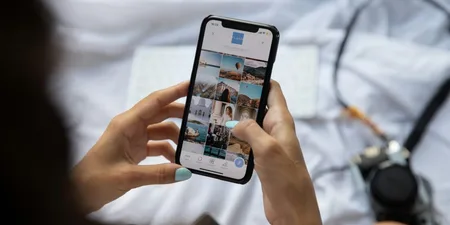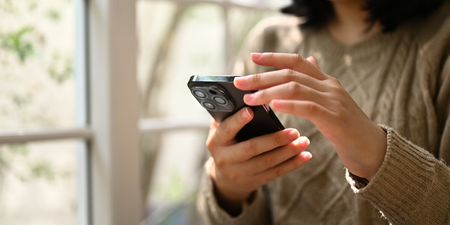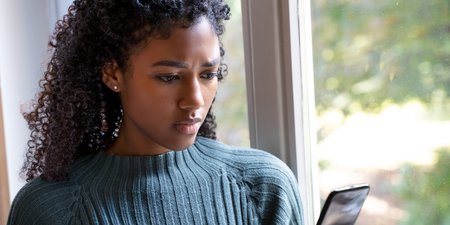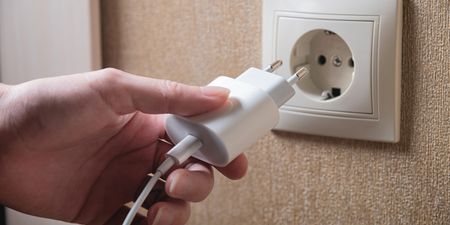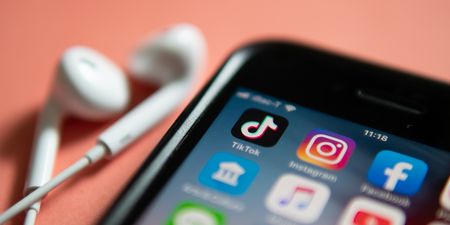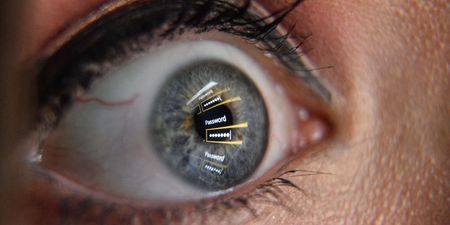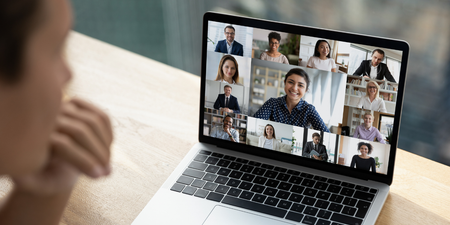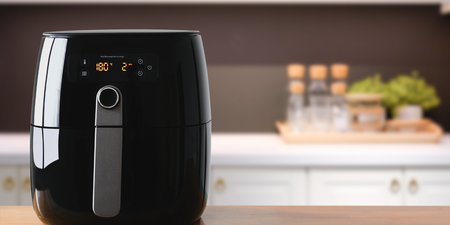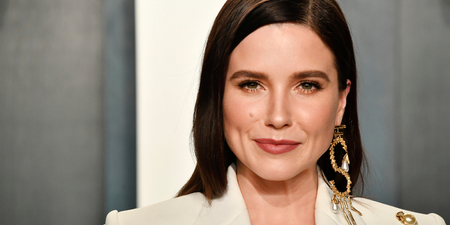#SelfCare.
Since the coronavirus outbreak began, social media has changed considerably – and predominately, not for the better.
Long gone are the posts depicting holidays spent by the beach, drink in hand, legs a bit burnt. We’ve said goodbye to photos of packed beer gardens and crisp pints in the evening. It’s been a while since anyone has shared a request for restaurant recommendations.
For a while, Twitter was just news and memes. Now, it seems as though it’s just news. Updates, clarifications, and speculation. Arguments and annoyances. Grief.
For a lot of us, scrolling infinitely was a strict part of our routines before the pandemic hit. Now it’s even harder to step away from the bad news, put the phone down, and take a breather. What if we miss something? What if it’s important?
Research has in fact shown that consuming too much bad news can actually be detrimental to our mental health – which is really not all that surprising considering it is bad news.

A 2018 survey from American Psychological Association showed that more than half of US citizens experienced anxiety or less sleep due to consistent bad news. And yet they, like us, keep coming back for more.
“The way that news is presented and the way that we access news has changed significantly over the last 15 to 20 years,” Graham Davey, professor emeritus of psychology at Sussex University, told TIME magazine.
“These changes have often been detrimental to general mental health.
“Our studies also showed that this change in mood exacerbates the viewer’s own personal worries, even when those worries are not directly relevant to the news stories being broadcast.”
Similarly, another study found that reading just three minutes of bad news in the morning (as opposed to happy news) can ruin a person’s mood for the rest of the day.
Couple this with the coronavirus pandemic – an event that every single one of us does have a right to be worried about – and it’s hardly surprising that these mood changes are more severe and intense this time around.
After all, who among us could consume every horror story, every death toll statistic, every perfectly healthy life lost too soon and not be at least a little bit affected by it?
But staying up to date with the news doesn’t have to mean consuming every single morsel of it, ready to strike at a moment’s notice whenever someone shares an incorrect stat or a hot take that you don’t agree with.

Instead, it could be reserving a half hour every day to check out trustworthy news sources to find out what’s been happening in the world. It could be restricting your intake to the Six One and the Six One only.
It could mean switching off from the news cycle for entire days at a time, dipping back when you feel ready or when it’s necessary, avoiding the hour+ long scroll marathons where you consume everything and learn nothing of note.
It could mean working out what’s best for you and finding what feels less daunting, rather than being always on when you shouldn’t have to be.
But Twitter isn’t the only platform that has seen a considerable change in content since the pandemic began. Instagram – the app most frequently abhorred for negatively affecting users’ mental health – has also seen a shift in substance.
As of this year, Instagram users have shared over 115 million posts featuring the hashtags #health and #wellbeing.
Chances are a considerable number of those come from celebrities, influencers, and wanna-be influencers; people who are sharing their own tips and tricks on how best to feel good during trying times without at all considering whether their own experiences are universal or not.

Maybe they’re simply a ploy to get likes, a tag to ensure that a post ends up on the Discovery pages of vulnerable people who will throw them a double tap, a couple of quid, or a considerably amount of cash to purchase whatever it is they’re selling.
But most people are good, their intentions are sound. They probably do genuinely want to make Instagram a more proactive and positive place, a spot where a user can come to practice self care and truly look after themselves.
But despite this, Instagram remains the worst social media app for mental health among young people.
A recent survey conducted by Ocean Finance showed that one in five people wouldn’t consider deleting Instagram, even if they knew for a fact that it was harming their health.
And it does too. Multiple studies have shown that the app has heightened anxiety levels in young people, increased experiences of depression, or negatively affected their body image.
The app has also long been linked to increased levels of FOMO (fear of missing out) as the constant live updates from users spending time with friends and loved ones can too often trigger feelings of isolation, especially when a person is watching them is alone.
FOMO is absolutely not as prevalent these days, but it doesn’t have to be. These feelings of loneliness already exist thanks to quarantine and social distancing. Which begs the question: why are we so determined to make ourselves feel worse?

It could all be down to the wiring of our brains and something called ‘negativity bias’ – our need to focus on the bad situations and devise ways to protect ourselves from them, rather than simply relaxing and focusing on the good.
Or, there’s a chance that we aren’t simply seeking out bad news, or posts liable to make us feel bad, at all. Rather, they are simply presented to us more often. Not because more bad things are happening, they’re just happening a lot faster.
After all, it’s easy to read that 100 people have died from Covid-19 complications in one day, but what about every single person who recovered? That data takes a tad longer to process.
So if constantly being served bad news on social media does have the potential to be detrimental to our mental health, what’s the solution?
Some suggest picking one platform (Twitter, a news app, or print) to get your news from and sticking with it. Others opt for consuming your news at lunchtime, to avoid being accosted with negativity first thing in the morning.
No one method is sure to work for everybody, but everybody is sure to benefit from a little bit less time on social media.




